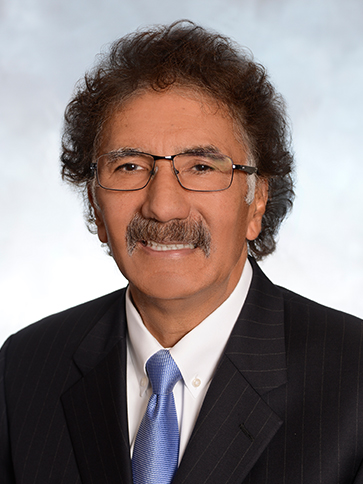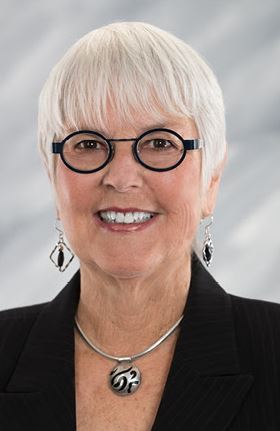
Port of Long Beach marks 20 years of leading green
After record year, State of the Port highlights success of 2005’s Green Port Policy
The Port of Long Beach is accomplishing its environmental, operational, and commercial goals and is setting its sights on even greater achievements in the years ahead, CEO Mario Cordero said Thursday during his eighth annual State of the Port address.
While reflecting on the Port’s record-setting 2024, with 9.6 million cargo containers moved with zero disruptions or backlogs, Cordero said Long Beach is making progress in transitioning operations to zero emissions, while marking dramatic air quality improvements and other environmental benefits throughout its 20 years as the Green Port.

Mario Cordero
“For those in 2005 who questioned our environmental resolve, the data shows otherwise. For those who said a Green Port wouldn’t be able to compete commercially, the facts show otherwise. And today, for those who still doubt us, we are proving you wrong every single day,” Cordero told more than 900 industry partners, community members and civic leaders gathered at the Long Beach Convention Center for the State of the Port address.
“We’ve achieved environmental progress and commercial success,” Cordero said. “I say let’s have more of both.”
The Long Beach Harbor Commission adopted the Green Port Policy in January 2005 as a promise to reduce harmful impacts from port operations and safeguard the health of people living in Long Beach and surrounding communities, protect wildlife and the natural habitat, and engage the community to ensure that the Port lives up to these commitments.
The Green Port Policy resulted in a range of sustainability initiatives that resulted in a cleaner harbor, industry-leading green building practices, and most notably, air quality improvements resulting from reductions in emissions. So far, diesel emissions are down 92%, nitrogen oxides by 71%, sulfur oxides by 98%, and greenhouse gases by 17% since 2005. And, Cordero said, the Port isn’t finished.
Cordero thanked the community for its role 20 years ago in demanding action that resulted in the Green Port Policy. He also credited industry partners, marine terminal operators, and waterfront workers for adopting innovative technologies and adapting to new, sustainable practices aimed at enhancing air and water quality while also achieving maximum efficiency for cargo movement.

Bonnie Lowenthal
“The Green Port Policy was the result of a grassroots movement at its very best,” said Long Beach Harbor Commission President Bonnie Lowenthal during her speech at the event. “It was and still is about improving quality of life and being responsive to the needs of our residents and neighboring communities.”
In cargo volume, the Port ended 2024 with 9,649,724 twenty-foot equivalent units processed, up 20.3% from a year earlier and a 2.8% increase from the previous record of more than 9.3 million TEUs moved in 2021. Imports rose 24.3% to 4,729,552 TEUs and exports declined 5.9% to 1,207,036 TEUs compared to 2023. Empty containers moving through the Port were up 26.6% to 3,713,137 TEUs.
The Port closed the year with its most active December by moving 861,006 TEUs, up 21.3% from the same month a year earlier and surpassing the previous record set in December 2020 by 5.5%. Imports jumped 23.9% to 412,876 TEUs and exports were down 2.8% to 100,792 TEUs from December 2023. Empty containers moving through the Port increased 27.3% to 347,338 TEUs.
December also marked the Port’s seventh consecutive monthly year-over-year cargo increase. It was also the Port’s busiest quarter overall with 2,732,351 TEUs moved between Oct. 1 and Dec. 31, breaking the previous record set during the third quarter of 2024 by 4%.

Rex Richardson
“No enterprise in Long Beach epitomizes the move away from fossil fuels to clean, alternative energy more than our Port,” said Long Beach Mayor Rex Richardson. “The Port is moving more cargo than ever before in ways that are cleaner than ever. We’re electrifying port infrastructure, cargo-moving equipment, trucking and rail operations.”
The Port of Long Beach continued to build on its Green Port legacy in 2024 through several landmark projects.
U.S. Secretary of Transportation Pete Buttigieg joined the Port to mark the start of construction on “America’s Green Gateway,” the Pier B On-Dock Rail Support Facility. The project will enhance cargo movement while improving air quality and vehicle traffic in Southern California. Additionally, Toyota Motor North America and FuelCell Energy partnered with the Port to open the first-of-its kind “Tri-gen” system to generate renewable hydrogen, electricity and water to support Toyota’s operations in Long Beach.
Representatives from the California State Lands Commission and the ports of Long Beach and Humboldt ceremonially signed a memorandum of understanding during the State of the Port, securing an agreement to collaborate on critical port infrastructure upgrades needed to support offshore wind projects statewide.
An environmental review is underway and community input continues to be gathered for Pier Wind, a proposed 400-acre terminal to assemble massive 1,100-foot-high floating offshore wind turbines that would be towed 20 to 30 miles off the coast of Central and Northern California. In addition to helping California meet its clean-energy goals, a recent preliminary economic impact report found that Pier Wind could generate $8 billion in labor income, $14.5 billion in economic output, and $1.3 billion in state and local taxes between now and 2045.









